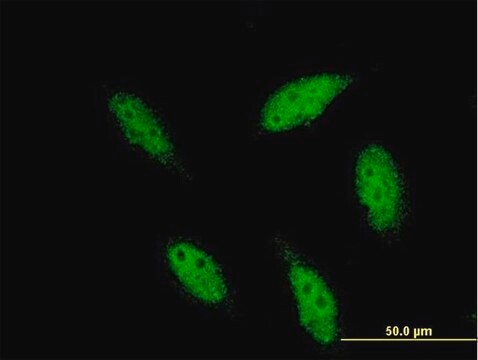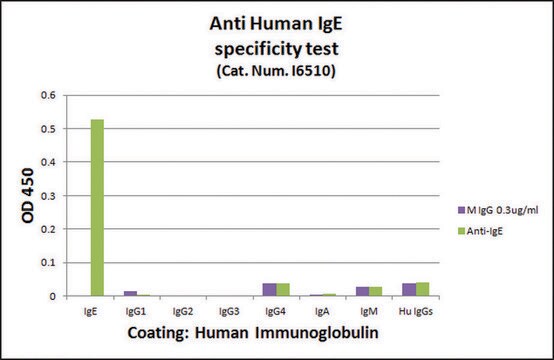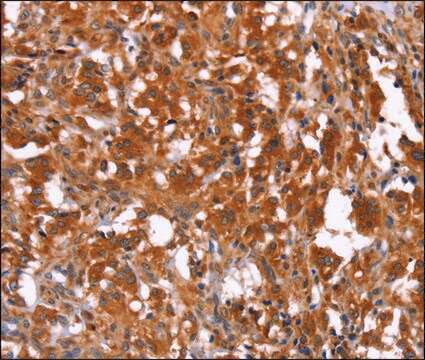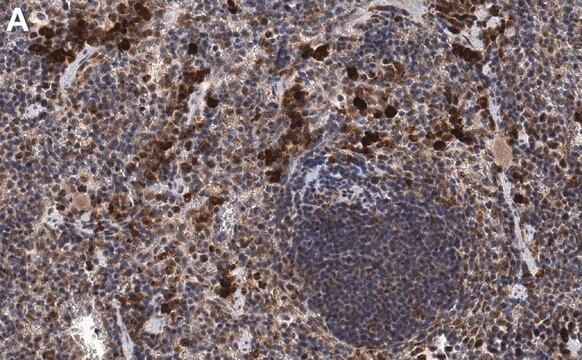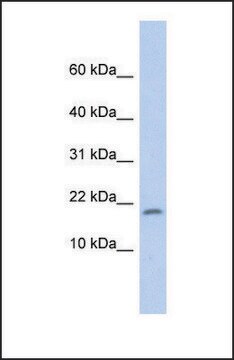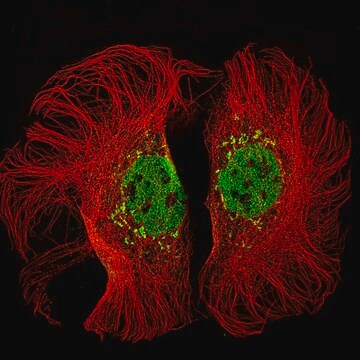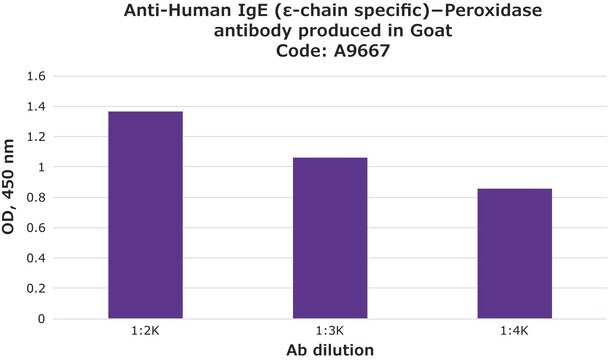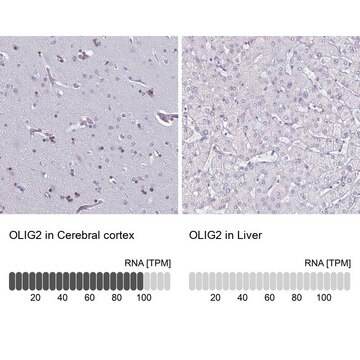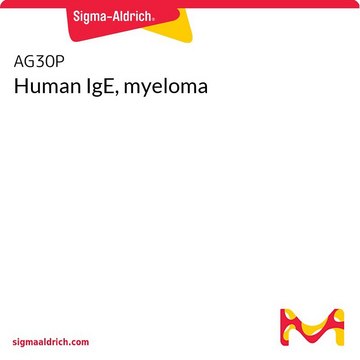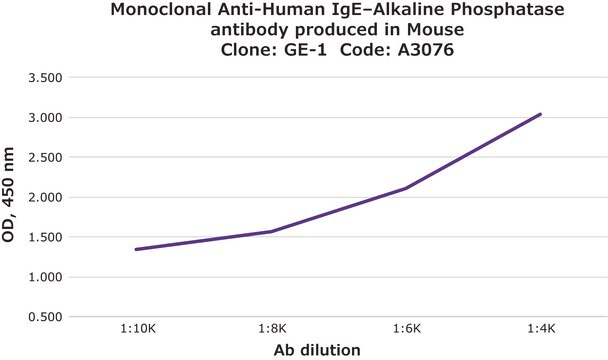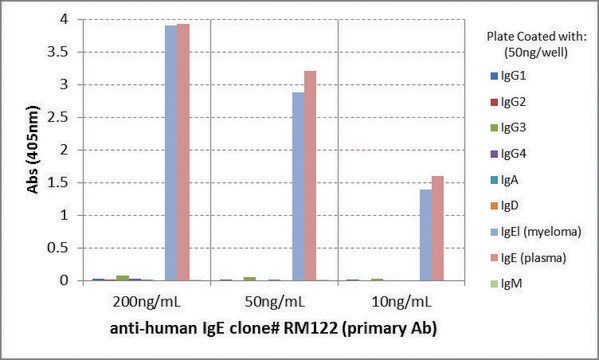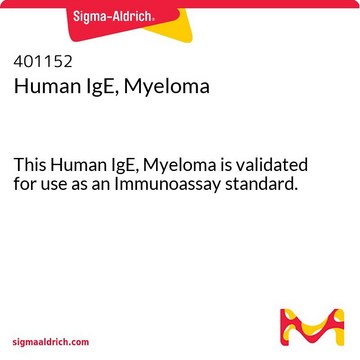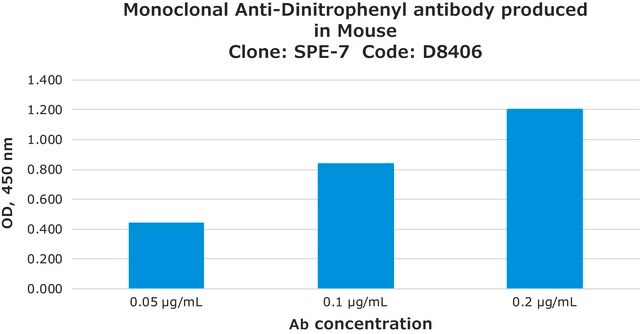SAB4200741
Anti-Human IgE antibody, Mouse monoclonal
clone GE-1, purified from hybridoma cell culture
Sinónimos:
Anti-Immunoglubulin E
About This Item
Productos recomendados
origen biológico
mouse
Nivel de calidad
forma del anticuerpo
purified from hybridoma cell culture
tipo de anticuerpo
primary antibodies
clon
GE-1, monoclonal
formulario
buffered aqueous solution
reactividad de especies
human
concentración
~1.0 mg/mL
técnicas
ELISA: 0.15-0.3 μg/mL using 1 μg/mL Human IgE myeloma for coating
immunoblotting: suitable
immunoprecipitation (IP): 1-2 μg/test using Human IgE myeloma
isotipo
IgG2b
Condiciones de envío
dry ice
temp. de almacenamiento
−20°C
modificación del objetivo postraduccional
unmodified
Descripción general
Inmunógeno
Aplicación
Acciones bioquímicas o fisiológicas
Forma física
¿No encuentra el producto adecuado?
Pruebe nuestro Herramienta de selección de productos.
Código de clase de almacenamiento
10 - Combustible liquids
Punto de inflamabilidad (°F)
Not applicable
Punto de inflamabilidad (°C)
Not applicable
Certificados de análisis (COA)
Busque Certificados de análisis (COA) introduciendo el número de lote del producto. Los números de lote se encuentran en la etiqueta del producto después de las palabras «Lot» o «Batch»
¿Ya tiene este producto?
Encuentre la documentación para los productos que ha comprado recientemente en la Biblioteca de documentos.
Los clientes también vieron
Artículos
Antibody-based serology tests are useful in identifying subjects with an adaptive immune response to the SARS-CoV-2 virus. Anti-human immunoglobulin antibodies allow for quick and simple, yet reliable assays with easy readouts and can also be adapted for high-throughput screening.
Nuestro equipo de científicos tiene experiencia en todas las áreas de investigación: Ciencias de la vida, Ciencia de los materiales, Síntesis química, Cromatografía, Analítica y muchas otras.
Póngase en contacto con el Servicio técnico